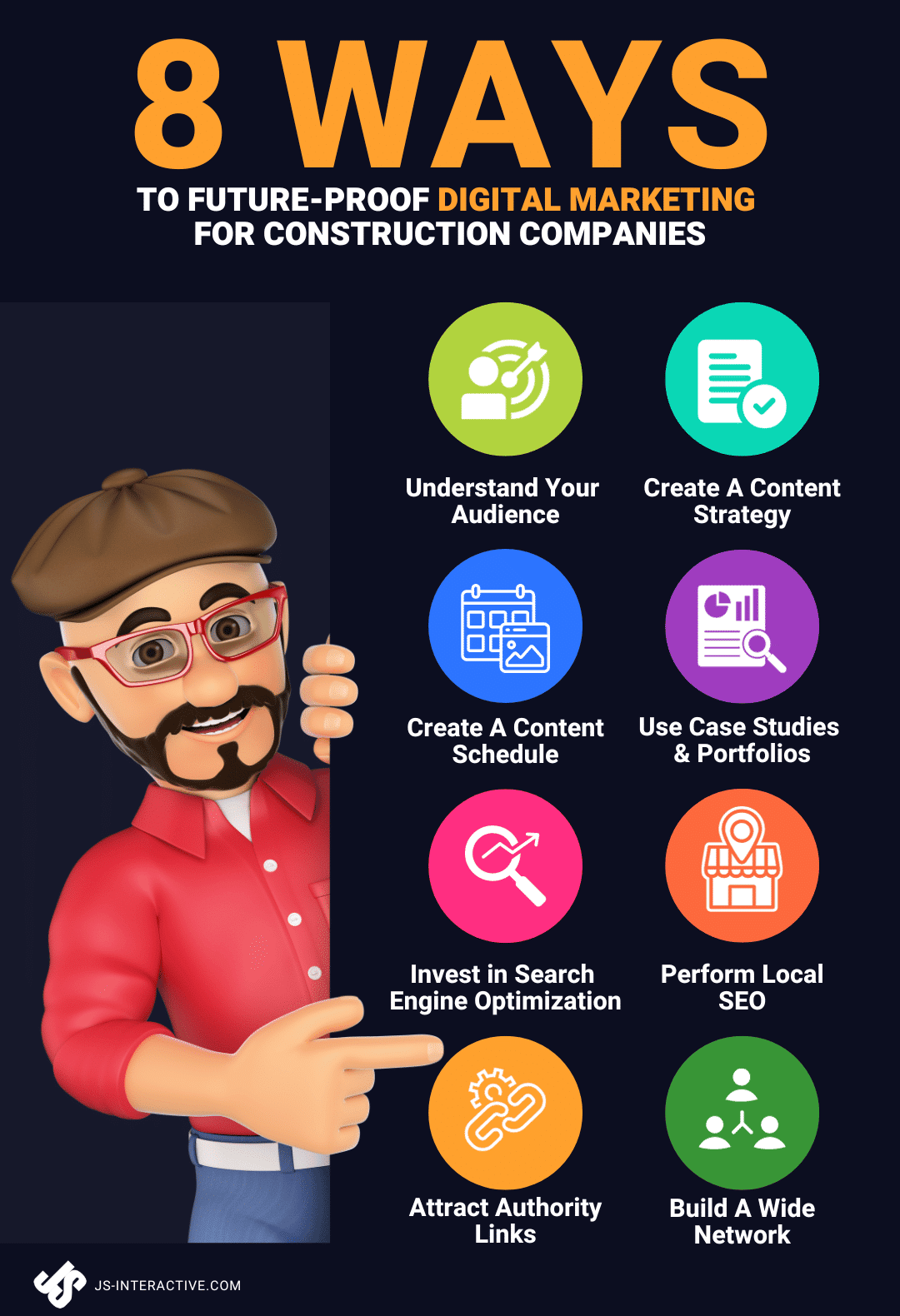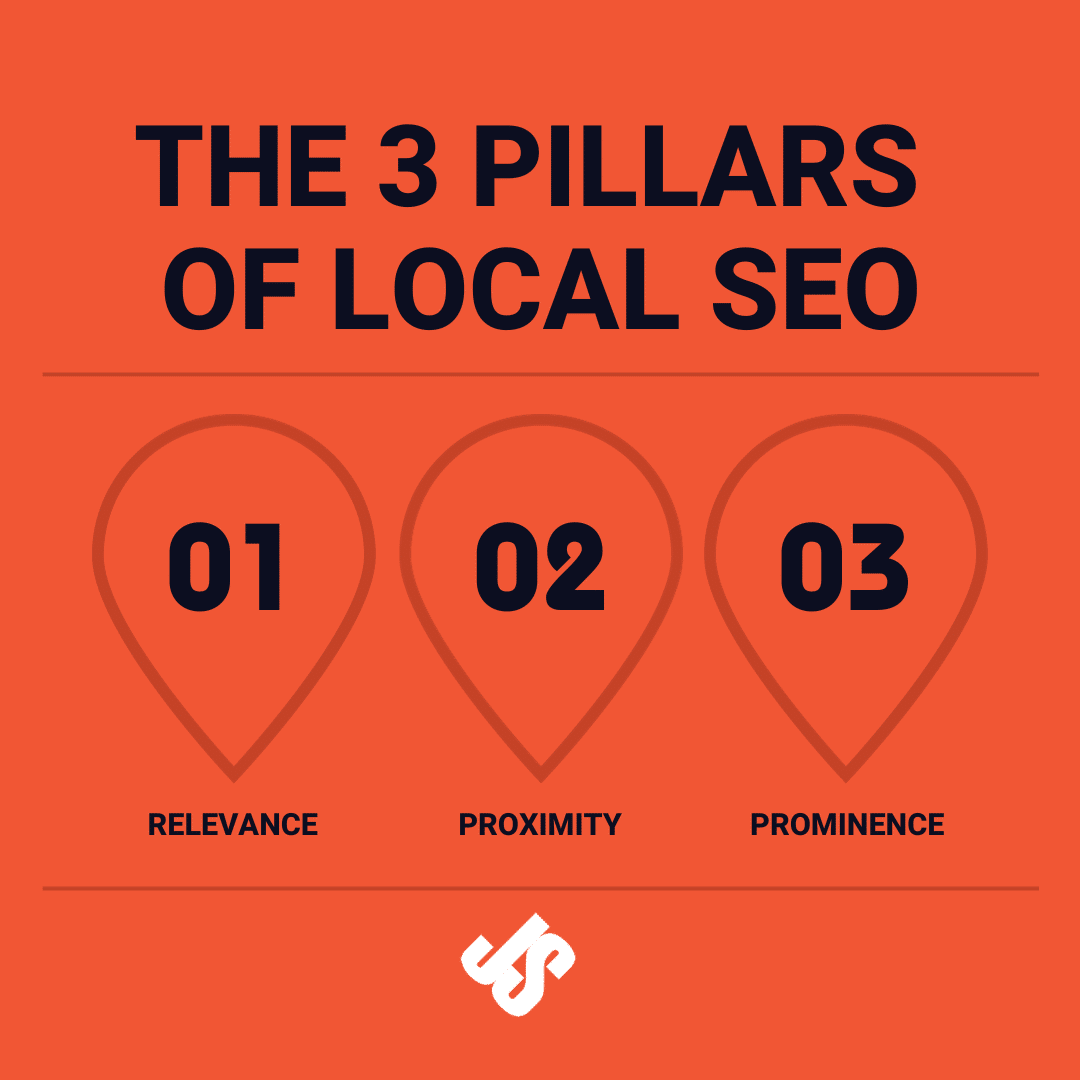How to Build Success with Digital Marketing for Construction Companies

Imagine approaching construction like building a fort as a kid. You get an idea and try replicating that idea using whatever scraps you find lying around. While it may look impressive at the moment, it won’t last.
Years of experience taught you the value of planning and starting with a strong foundation. You have also learned the value of contracting other companies to help with the project and tap into different expertise, like plumbing, electrics, and roofing.
Digital marketing for construction companies is (similar) It should be a solid structure that draws clients to your business. To connect with quality customers and attract consistent leads, you must treat your digital marketing like a construction project, not a fort.
To build a strategy that stands the test of time and yields profitable results, you need a plan, a strong foundation, a functional yet attractive appearance, and partners with expertise that complement yours.
Let’s walk through what that successful digital marketing structure looks like.
How Much Does Digital Marketing Impact Construction Companies?
Your digital marketing and online presence significantly impact your company.
However, construction and digital experiences have minimal crossover. Your work doesn’t leave as many digital footprints that benefit your online presence compared to other businesses.
For example, an e-commerce brand has a significant online presence since most of its business takes place virtually, boosting its online authority and brand awareness. That’s not the case with construction companies where most of your work is outside with physical materials.
Creating a digital footprint requires extra work to transfer the notable mark you make in your construction field to the digital world. In order to shine a virtual light on your work, you may need outside help from marketing agencies.
Improving your online authority alongside your in-person authority helps you in multiple ways, including:
- Discovering and networking with new clients
- Educating new and current clients about best practices
- Building authority as a leading construction company
- Showcasing your incredible construction work
In addition, construction clients are changing. Due to telehealth and remote work advances, construction companies receive fewer contracts in specific segments. Healthcare practices (like therapists) can reach larger areas with fewer physical buildings using telehealth services and businesses can run 100% remote teams without needing physical office space.
As a result, a 2021 Deloitte report showed that 60% of engineering and construction leaders plan to diversify to fill in gaps left by those industries. Digital construction marketing will be the backbone of diversifying and reaching those new segments.
8 Ways to Future-Proof Digital Marketing for Construction Companies

Here are eight tips to help you maximize your digital marketing moving into 2024.
1. Understand Your Audience
The goal of digital marketing for construction companies isn’t closing a deal. It’s demonstrating your empathetic authority in your field and offering quality solutions to the problems your customers face.
To earn their trust, you must know who they are. What are their problems? How can your services solve their dilemma so they can live the life they dream of?

Building an ideal client profile creates a role model you can follow to understand and find those ideal clients. The profile covers motivators behind purchasing and common challenges you can address.
Additionally, creating a negative buyer persona identifies the businesses you don’t want to attract, whether it’s because they fall outside of your expertise or don’t have the budget and resources for your services.
To build this client-centric strategy, you must understand your audience and verticals. To understand them, use data from sources such as:
- Past client actions
- Website and campaign analytics
- Client surveys
- Construction industry trend reports
- Online feedback
Use the data you fill in your ideal customer profiles that define your ideal clients, their behaviors, and firmographic details.
2. Create a Content Strategy
Your content strategy is the blueprint for constructing your digital marketing strategy.
While digital marketing includes strategies beyond content, written and visual media is the backbone of your digital marketing, as nearly all outreach will involve creative words and engaging images along the way, from social media posts to Google ads and website copy.
A content strategy provides direction and steps to ensure you include all the necessary parts of a successful digital marketing strategy. It should have specific goals and benchmarks you will use to measure your success and ensure your investment yields a return.
In your content strategy, list your channels to reach your audience. The best channels are the ones your audience frequents. For instance, 80% of B2B marketers say their clients use LinkedIn, making it the most popular social platform for connecting with other businesses.
Paid advertising is also a popular digital marketing strategy among construction companies, as more than 83% of construction companies in 2021 invested in that channel.
3. Create a Content Schedule
A content schedule is the first step to transforming your strategy into action. It’s a list of:
- Topics and keywords
- Channels you’ll use based on your clients’ behavior (such as blogs, social media, email, ads, and guest posts)
- Media you need (like video and images)
- Publication dates and times
You’ll use your content schedule to track your progression so you can see what content you published and what content is coming up. It helps you build a consistent schedule with a unified brand voice while also helping you easily audit past content to keep it relevant.
4. Use Case Studies and Portfolios in Your Marketing
While the specific type of content you use and the channels you market through depend on your audience, one element should remain the same for all construction companies. Case studies and portfolios should be front and center in your digital marketing.
Google’s E-E-A-T algorithm prioritizes content and assets that show personal experience and expertise. So, those with notable experience showcased in their content have a higher chance of ranking closer to the top of search engine results pages.
Here are some ways to showcase your past work and experience as a construction company to build trust with your audience:
- Share a gallery of work on social media and your website
- Create video case studies that show your construction company in action
- Share testimonials about your past work on your website’s front page
- Write case study blog posts and assets
Successful case studies focus on solutions rather than just promoting your services.
For example, Catalyst Construction lists its services as community benefits. You might talk about how you increased a company’s revenue through your construction or improved a community through your work to show your impact beyond fulfilling construction needs.
5. Invest in Search Engine Optimization
Search engine optimization (SEO) allows you to move customers through the sales funnel, respond to customer queries, drive more website traffic, and build construction industry authority.
SEO optimizes your content for search engines to help it rank higher on search engine results pages (SERPs). That’s key to generating traffic and landing in front of your audience because only 0.63% of Google search engine users will click second-page search results.
Organic strategies are unpaid, long-term digital marketing strategies. Organic search, when you do SEO well, can generate 1,000% more web traffic than organic social media.
SEO involves several moving parts, including:
- Researching low competition, high traffic keywords (search query terms your clients are most likely to use to find your business)
- Incorporating the keywords and synonyms throughout your online content, including headers, meta descriptions, and introductions
- Performing a competitor analysis to discover new keyword opportunities your competition ranks for and you haven’t tapped into yet
- Creating a seamless website experience with fast page load speeds and easy navigation
6. Perform Local SEO
Digital marketing for construction companies should prioritize local clients as they have the highest conversion potential.
Local SEO targets keywords from your service area. For example, if you’re a construction company in Austin, you might create content around the search term “roofing company in Austin.” Because your local keyword is specific, fewer competitors are trying to rank for that term, giving you a higher chance of snagging a top spot.
Create a multi-location strategy targeting a wider area if you have multiple locations. For instance, location-specific landing pages customize your online experience based on where your clients are.
When creating a local SEO strategy, build on the three pillars of local SEO to increase your ranking potential:
- Proximity: Focus on clients within your service area.
- Prominence: Increase brand awareness in the area you’re targeting.
- Relevance: Meet local needs.

7. Attract Authority Links
Link building is crucial to your SEO’s success as it supports your brand authority.
Links from third-party sources are like stamps of approval. The links show Google that you’re a reliable source of information in the construction industry.
Websites with more high-quality links tend to rank higher in search results and have a higher domain authority score. To encourage more links, use digital public relations, outreach, content syndication, and guest posts to connect with other businesses and link back to your website from those authoritative sites.
8. Build a Wide Network
There are several ways to build an online network, including:
- Join professional groups on social media platforms like LinkedIn or Facebook
- Take a genuine interest in others
- Engage in online discussions and forums
- Follow and interact with influencers in the construction field
- Tag your partners and collaborators on social media
- Look for ways to serve others in your field
By building a strong online network, you can stay current with industry trends, find new clients and job opportunities, and establish yourself as a thought leader in the construction industry.
You’ll also want to build a network offline using networking opportunities like community events and conferences.
As you build your network, prioritize those relationships, continually investing in those partners so they feel their worth. Your networks open opportunities to collaborate, share insights, and promote one another’s businesses.
Perhaps most importantly, though, you can build trust in your network by taking an interest in other companies and cheering on their success.
Begin Constructing a Winning Digital Marketing Strategy for Construction Companies
To gain an edge in the competitive market of construction, you need – you deserve – a digital marketing strategist who can build your brand the right way.
With over 15 years of experience in digital marketing, JS-Interactive has the experience and expertise your construction company needs to thrive.
Reach out today for a free consultation! Your digital marketing solutions are just a click away!
Get Marketing Insights to your Inbox
Boost visibility, outshine your competitors and attract more customers